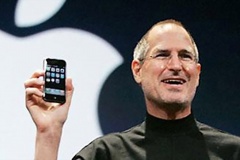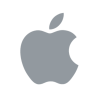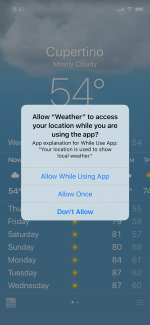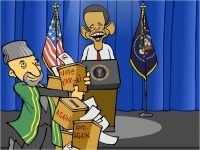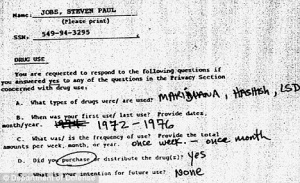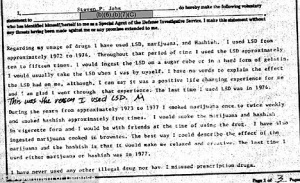Difference between revisions of "Steve Jobs"
| (23 intermediate revisions by 2 users not shown) | |||
| Line 11: | Line 11: | ||
}} | }} | ||
| − | Steve Jobs was an American entrepreneur, investor, and designer born in February 1955. He was the CEO and co-founder of Apple with Steve Wozniak and was the CEO of Pixar Animation studios. He is known for spearheading the personal computer revolution and creating the Macintosh, iPod, iPad, and iPhone. | + | Steve Jobs was an American entrepreneur, investor, and designer born in February 1955. He was the CEO and co-founder of Apple with Steve Wozniak and was the CEO of Pixar Animation studios. He is known for spearheading the personal computer revolution and creating [[MacOS|MacOS]], the Macintosh, iPod, iPad, and iPhone. At the beginning of January 2019, current Apple CEO Tim Cook announced that Apple had over 1.4 billion active devices. |
| − | + | Jobs and Wozniak co-founded Apple in 1976 to sell Wozniak's Apple I personal computer. Together they developed Apple II, one of the first highly successful mass-produced microcomputers. However, in 1985, Jobs was fired from Apple in 1985 after a power struggle with the company's then-CEO John Sculley (who Jobs had appointed). That same year, Jobs founded NeXT, a computer platform development company, and he funded a computer graphics called Pixar, which eventually produced the famous animated film Toy Story in 1995. By 1997, Jobs had become CEO of his former company again and is thus largely accredited for helping revive Apple, which had been at the verge of bankruptcy. | |
| − | Jobs | + | |
| − | + | However, despite his colossal successes, Steve Jobs has been openly scrutinized for his ethics in technology surrounding privacy, transparency, and censorship. Additionally, because he is a role model and leader, he has been criticized for his casual use of drugs. | |
| − | + | ==Personal Life== | |
| + | ===Childhood=== | ||
| + | Jobs was born on February 24, 1955 to Abdulfattah Jandali and Joanne Schieble in San Francisco. Because Schieble's parents were unhappy that she was dating a muslim man, they threatened to cut her off if she continued her relationship with Jandali. Consequently, after Schieble gave birth to Jobs, she decided that it would be best to give him up for adoption. Paul and Clara Jobs eventually adopted Jobs after many unsuccessful attempts to have a baby. Clara Jobs later admitted she worried if adopting Jobs was a mistake considering how troublesome and problematic he was. Jobs was not only a fussy baby, but he was also a troublemaker in school and even got suspended once for putting explosives in the teachers' desks.<ref name="The Richest">The Richest, [https://www.therichest.com/high-life/15-surprising-facts-about-steve-jobs-childhood/]</ref> | ||
| + | ===Apple=== | ||
| + | [[File:applelogo.png|100px|thumb|right|Apple company logo]] | ||
| + | In March 1976, Apple Co-Founder Steve Wozniak approached Jobs with the basic design of the Apple I computer. Later Wozniak and Jobs founded Apple Computer Company (now known as just Apple) in Jobs' parents home in Los Altos, CA. According to Wozniak, Jobs came up with the name "Apple" after having worked at many apple orchards in Oregon. Jobs and Wozniak liked the name because it sounded "fun, spirited, and not intimidating". In order to raise the money to create their first circuit boards, Jobs sold his Volkswagen Van and Wozniak sold his HP scientific calendar.<ref name="Macworld">Macworld, [https://www.macworld.co.uk/feature/apple/history-of-apple-steve-jobs-mac-3606104/]</ref> In January 2018 more than 1.4 billion Apple products were actively used worldwide, and by August 2018 Apple became the first public U.S. company valued over $1 trillion. | ||
| − | + | ===Family=== | |
| + | From 1972-1977 Jobs was partners with his high school girlfriend Chrisann Brennan. Together they had one child, Lisa Brennan-Jobs in 1978 who Jobs would later deny paternity of in 1980. In a 2018 interview with Vanity Fair, Brennan-Jobs revealed what her relationship with her dad was like. To begin, she described how Jobs wasn't at the hospital when she was born, and only saw her for the first time a few days later. Upon laying his eyes on Brennan-Jobs, he claimed "it's not my kid" and walked out of the room.<ref name="Vanity Fair">Vanity Fair, [https://www.vanityfair.com/news/2018/08/lisa-brennan-jobs-small-fry-steve-jobs-daughter]</ref> | ||
| − | + | [[File:jobsandbrennan.jpg|150px|thumb|left|Jobs with Brennan-Jobs]] | |
| + | Additionally, Brennan-Jobs described how in 1980, the district attorney of San Mateo County, California sued Jobs for un-paid child support payments. In response, Jobs denied paternity, claiming he was sterile, and demanded a DNA test. When the test came back 94.4% positive, Jobs agreed to pay $385 per month and medical insurance until Brennan-Jobs turned 18. Four days after trial, Apple went public and Jobs was worth more than $200 million overnight. Jobs then agreed to increase his child-support payments to $500 monthly. | ||
| − | + | Many years later, after Jobs left Apple, he apologized many times to Lisa and attempted to reconcile with her. Lisa forgave him and legally changed her last name from Brennan to Brennan-Jobs. Brennan-Jobs ended the interview by stating that although she and Jobs had a strong relationship at the time of his death, she was "not compelling enough for [her] father, [...], to unequivocally own" for the first half of her life.<ref name="Vanity Fair">Wikipedia, [https://www.vanityfair.com/news/2018/08/lisa-brennan-jobs-small-fry-steve-jobs-daughter]</ref> | |
| − | + | ||
| − | + | At the time of his death, Jobs was married to Laurene Powell, an American business woman. Jobs and Powell had three children together. | |
| − | + | ||
| − | + | ==Ethical Concerns== | |
| + | ===Ethics in Technology=== | ||
| + | ====Privacy==== | ||
| + | Steve Jobs once famously said, "A brand is simply trust". He believed that without trust a brand/company was worthless. No matter how good the product or sales is, a brand/company will never have customers without trust. Consequestly, Jobs believed that the first way to gain trust was [[Information Transparency|transparency]] about [[Privacy Policies at Apple Inc.|privacy]]. In an interview Jobs about [[Mark Zuckerberg|Mark Zuckerberg]] and [[Cambridge Analytica|Cambridge Analytica]], Jobs stated that "privacy means people know what they're signing up for, in plain English, repeatedly". He never wanted to use peoples' data behind their back for surveillance or economic reasons. In fact, when asked whether Apple was tracking peoples' locations, Jobs vehemently stated that apps only track people after they have received a pop-up asking for their permission. Jobs built trust by ensuring that people always knew what their apps were doing.<ref name="QZ">QZ, [https://qz.com/1236322/apples-steve-jobs-tried-to-warn-facebooks-mark-zuckerberg-about-privacy-years-before-the-cambridge-analytica-debacle/]</ref> | ||
| + | [[File:appletrack.png|150px|thumb|left|An example of Apple asking a user permission to track their location]] | ||
| − | https://www. | + | ====Censorship==== |
| − | + | Jobs wasn't opposed to [[Censorship|censorship]]. His censorship first began in 2007 when the app store was created. At this time, no apps from outside developers were available for purchase because he didn't want these apps to infect the device with viruses or "pollute its integrity". However, after multiple conversations with Apple board member Art Levinson and SVP of worldwide product marketing Phil Schiller, Jobs agreed to allow externally made apps to be potentially featured on the app store.<ref name="The Guardian">The Guardian, [https://www.theguardian.com/technology/appsblog/2011/oct/24/steve-jobs-apps-iphone]</ref> Although external apps had the ability to be on the app store, only certain apps which Jobs approved of were actually listed in the store. Under Jobs' leadership, the Apple app store banned apps that featured gay art, gay travel guides, political cartoons, “sexy photographs” and Congressional candidate pamphlets. In fact, he even publicly stated that people who want [[Pornography|pornography]] on their phone should just buy an Android (a different kind of smart phone).<ref name="All That's Interesting">All That's Interesting, [https://allthatsinteresting.com/steve-jobs-dark-truths/5]</ref> | |
| + | [[File:markfioresatire.jpg|200px|thumb|right|An image from Mark Fiore's satirical comic]] | ||
| − | + | One of the biggest conflicts Apple faced surrounding censorship occured when users' were found out that Jobs' had taken an app featuring Mark Fiore's Pulitzer-winning cartoon because the cartoon ridiculed public figures. However, after facing fire from the press, Apple put the app back on the app store -- an action that then begged the question, "Can satire now be featured on the app store?" Later, the Association of American Editorial Cartoons published a letter to Jobs asking for Apple to support free speech. In the letter, the association wrote, “Now is the time for Apple to welcome a vibrant and diverse world of news and opinion with open arms.”<ref name="The Wired">The Wired, [https://www.wired.com/2010/04/app-store-transparency/]</ref> | |
| + | ===Ethics as a Leader=== | ||
| + | ====Drug Use ==== | ||
| + | Jobs was no stranger to marijuana and LSD, and heavily attributes LSD to the creation of Apple. In a government security clearance interview with the Pentagon, Jobs revealed that he used to smoke and eat pot brownies with friends multiple times a week from 1973-1977. Additionally, he used LSD approximately ten to fifteen times from 1972-1974.<ref name="The Daily Mail">The Daily Mail, [https://www.dailymail.co.uk/news/article-2159004/Apple-founder-Steve-Jobs-told-Pentagon-LSD-marijuana-use-1970s.html]</ref> Claiming drugs helped him relax and made him more creative, Jobs once famously said, "Taking LSD was a profound experience, one of the most important things in my life. [...] It reinforced my sense of what was important—creating great things instead of making money."<ref name="Insider">Insider, [https://www.insider.com/what-is-microdosing-2019-1]</ref> | ||
| − | + | [[File:jobsdrugs.jpg|300px|thumb|left|The Pentagon Files of Jobs' Interview]] | |
| − | + | ||
| − | + | ||
| − | + | [[File:jobslsd.jpg|300px|thumb|right|File of Jobs Explaining his LSD Experience]] | |
| − | + | Many wonder if Apple would've been so successful, creative, and innovative, if Steve Jobs hadn't been a heavy advocate for certain drugs. Steve Jobs himself accredits his LSD trips as a large source of inspiration, and his inspiration is seen in the close parallels and similarities between LSD and iPhones. Most strikingly, both "feel profoundly artificial yet deeply real", in other words the use of either feels transcendent. Additionally, both have positives and negatives effects that users must weigh before deciding to use either. Drugs and computers both "make us feel divinely connected to our environments and other people, they lift mood and bring us joy". However, they also can create distance and trigger addiction and consequently destroy human connection.<ref name="Healthland">Healthland, [https://healthland.time.com/2011/10/06/jobs-had-lsd-we-have-the-iphone/]</ref> | |
| − | + | Another ethical issue that stems from Jobs' drug use is that it has become the inspiration for "microdosing", a popular practice in the Silicon Valley where people consume a small quantity of drugs every few days. Many claim that "microdosing" helps them get ahead by staying productive through exhaustion or by sparking creativity. This becomes problematic because the manufacture of illegal drugs does not have rigorous regulatory controls -- in other words, people don't always get what they are told they are getting.<ref name="Independent">Independent, [https://www.independent.co.uk/voices/lsd-microdosing-california-silicon-valley-california-drugs-young-professionals-a8259001.html]</ref> Although it was not his intention, Jobs' support of LSD may have encouraged young tech entrepreneurs to explore dangerous, unchecked drugs. | |
| − | + | ||
| − | + | ||
| − | + | ||
| − | + | ||
| − | + | ||
| − | + | ||
| − | + | == References == | |
| + | <references/> | ||
| + | |||
| + | [[Category:2020New]] | ||
| + | [[Category:2020Person]] | ||
Latest revision as of 18:11, 28 March 2020
| Birthname | Steven Paul Jobs |
| Date of Birth | February 24, 1955 |
| Birth Place | San Francisco, CA, USA |
| Nationality | American |
| Occupation | Entrepreneur, Designer, Businessman |
| Biography | Best known as the CEO and Co-Founder of Apple and CEO Pixar |
Steve Jobs was an American entrepreneur, investor, and designer born in February 1955. He was the CEO and co-founder of Apple with Steve Wozniak and was the CEO of Pixar Animation studios. He is known for spearheading the personal computer revolution and creating MacOS, the Macintosh, iPod, iPad, and iPhone. At the beginning of January 2019, current Apple CEO Tim Cook announced that Apple had over 1.4 billion active devices.
Jobs and Wozniak co-founded Apple in 1976 to sell Wozniak's Apple I personal computer. Together they developed Apple II, one of the first highly successful mass-produced microcomputers. However, in 1985, Jobs was fired from Apple in 1985 after a power struggle with the company's then-CEO John Sculley (who Jobs had appointed). That same year, Jobs founded NeXT, a computer platform development company, and he funded a computer graphics called Pixar, which eventually produced the famous animated film Toy Story in 1995. By 1997, Jobs had become CEO of his former company again and is thus largely accredited for helping revive Apple, which had been at the verge of bankruptcy.
However, despite his colossal successes, Steve Jobs has been openly scrutinized for his ethics in technology surrounding privacy, transparency, and censorship. Additionally, because he is a role model and leader, he has been criticized for his casual use of drugs.
Contents
Personal Life
Childhood
Jobs was born on February 24, 1955 to Abdulfattah Jandali and Joanne Schieble in San Francisco. Because Schieble's parents were unhappy that she was dating a muslim man, they threatened to cut her off if she continued her relationship with Jandali. Consequently, after Schieble gave birth to Jobs, she decided that it would be best to give him up for adoption. Paul and Clara Jobs eventually adopted Jobs after many unsuccessful attempts to have a baby. Clara Jobs later admitted she worried if adopting Jobs was a mistake considering how troublesome and problematic he was. Jobs was not only a fussy baby, but he was also a troublemaker in school and even got suspended once for putting explosives in the teachers' desks.[1]
Apple
In March 1976, Apple Co-Founder Steve Wozniak approached Jobs with the basic design of the Apple I computer. Later Wozniak and Jobs founded Apple Computer Company (now known as just Apple) in Jobs' parents home in Los Altos, CA. According to Wozniak, Jobs came up with the name "Apple" after having worked at many apple orchards in Oregon. Jobs and Wozniak liked the name because it sounded "fun, spirited, and not intimidating". In order to raise the money to create their first circuit boards, Jobs sold his Volkswagen Van and Wozniak sold his HP scientific calendar.[2] In January 2018 more than 1.4 billion Apple products were actively used worldwide, and by August 2018 Apple became the first public U.S. company valued over $1 trillion.
Family
From 1972-1977 Jobs was partners with his high school girlfriend Chrisann Brennan. Together they had one child, Lisa Brennan-Jobs in 1978 who Jobs would later deny paternity of in 1980. In a 2018 interview with Vanity Fair, Brennan-Jobs revealed what her relationship with her dad was like. To begin, she described how Jobs wasn't at the hospital when she was born, and only saw her for the first time a few days later. Upon laying his eyes on Brennan-Jobs, he claimed "it's not my kid" and walked out of the room.[3]
Additionally, Brennan-Jobs described how in 1980, the district attorney of San Mateo County, California sued Jobs for un-paid child support payments. In response, Jobs denied paternity, claiming he was sterile, and demanded a DNA test. When the test came back 94.4% positive, Jobs agreed to pay $385 per month and medical insurance until Brennan-Jobs turned 18. Four days after trial, Apple went public and Jobs was worth more than $200 million overnight. Jobs then agreed to increase his child-support payments to $500 monthly.
Many years later, after Jobs left Apple, he apologized many times to Lisa and attempted to reconcile with her. Lisa forgave him and legally changed her last name from Brennan to Brennan-Jobs. Brennan-Jobs ended the interview by stating that although she and Jobs had a strong relationship at the time of his death, she was "not compelling enough for [her] father, [...], to unequivocally own" for the first half of her life.[3]
At the time of his death, Jobs was married to Laurene Powell, an American business woman. Jobs and Powell had three children together.
Ethical Concerns
Ethics in Technology
Privacy
Steve Jobs once famously said, "A brand is simply trust". He believed that without trust a brand/company was worthless. No matter how good the product or sales is, a brand/company will never have customers without trust. Consequestly, Jobs believed that the first way to gain trust was transparency about privacy. In an interview Jobs about Mark Zuckerberg and Cambridge Analytica, Jobs stated that "privacy means people know what they're signing up for, in plain English, repeatedly". He never wanted to use peoples' data behind their back for surveillance or economic reasons. In fact, when asked whether Apple was tracking peoples' locations, Jobs vehemently stated that apps only track people after they have received a pop-up asking for their permission. Jobs built trust by ensuring that people always knew what their apps were doing.[4]
Censorship
Jobs wasn't opposed to censorship. His censorship first began in 2007 when the app store was created. At this time, no apps from outside developers were available for purchase because he didn't want these apps to infect the device with viruses or "pollute its integrity". However, after multiple conversations with Apple board member Art Levinson and SVP of worldwide product marketing Phil Schiller, Jobs agreed to allow externally made apps to be potentially featured on the app store.[5] Although external apps had the ability to be on the app store, only certain apps which Jobs approved of were actually listed in the store. Under Jobs' leadership, the Apple app store banned apps that featured gay art, gay travel guides, political cartoons, “sexy photographs” and Congressional candidate pamphlets. In fact, he even publicly stated that people who want pornography on their phone should just buy an Android (a different kind of smart phone).[6]
One of the biggest conflicts Apple faced surrounding censorship occured when users' were found out that Jobs' had taken an app featuring Mark Fiore's Pulitzer-winning cartoon because the cartoon ridiculed public figures. However, after facing fire from the press, Apple put the app back on the app store -- an action that then begged the question, "Can satire now be featured on the app store?" Later, the Association of American Editorial Cartoons published a letter to Jobs asking for Apple to support free speech. In the letter, the association wrote, “Now is the time for Apple to welcome a vibrant and diverse world of news and opinion with open arms.”[7]
Ethics as a Leader
Drug Use
Jobs was no stranger to marijuana and LSD, and heavily attributes LSD to the creation of Apple. In a government security clearance interview with the Pentagon, Jobs revealed that he used to smoke and eat pot brownies with friends multiple times a week from 1973-1977. Additionally, he used LSD approximately ten to fifteen times from 1972-1974.[8] Claiming drugs helped him relax and made him more creative, Jobs once famously said, "Taking LSD was a profound experience, one of the most important things in my life. [...] It reinforced my sense of what was important—creating great things instead of making money."[9]
Many wonder if Apple would've been so successful, creative, and innovative, if Steve Jobs hadn't been a heavy advocate for certain drugs. Steve Jobs himself accredits his LSD trips as a large source of inspiration, and his inspiration is seen in the close parallels and similarities between LSD and iPhones. Most strikingly, both "feel profoundly artificial yet deeply real", in other words the use of either feels transcendent. Additionally, both have positives and negatives effects that users must weigh before deciding to use either. Drugs and computers both "make us feel divinely connected to our environments and other people, they lift mood and bring us joy". However, they also can create distance and trigger addiction and consequently destroy human connection.[10]
Another ethical issue that stems from Jobs' drug use is that it has become the inspiration for "microdosing", a popular practice in the Silicon Valley where people consume a small quantity of drugs every few days. Many claim that "microdosing" helps them get ahead by staying productive through exhaustion or by sparking creativity. This becomes problematic because the manufacture of illegal drugs does not have rigorous regulatory controls -- in other words, people don't always get what they are told they are getting.[11] Although it was not his intention, Jobs' support of LSD may have encouraged young tech entrepreneurs to explore dangerous, unchecked drugs.

